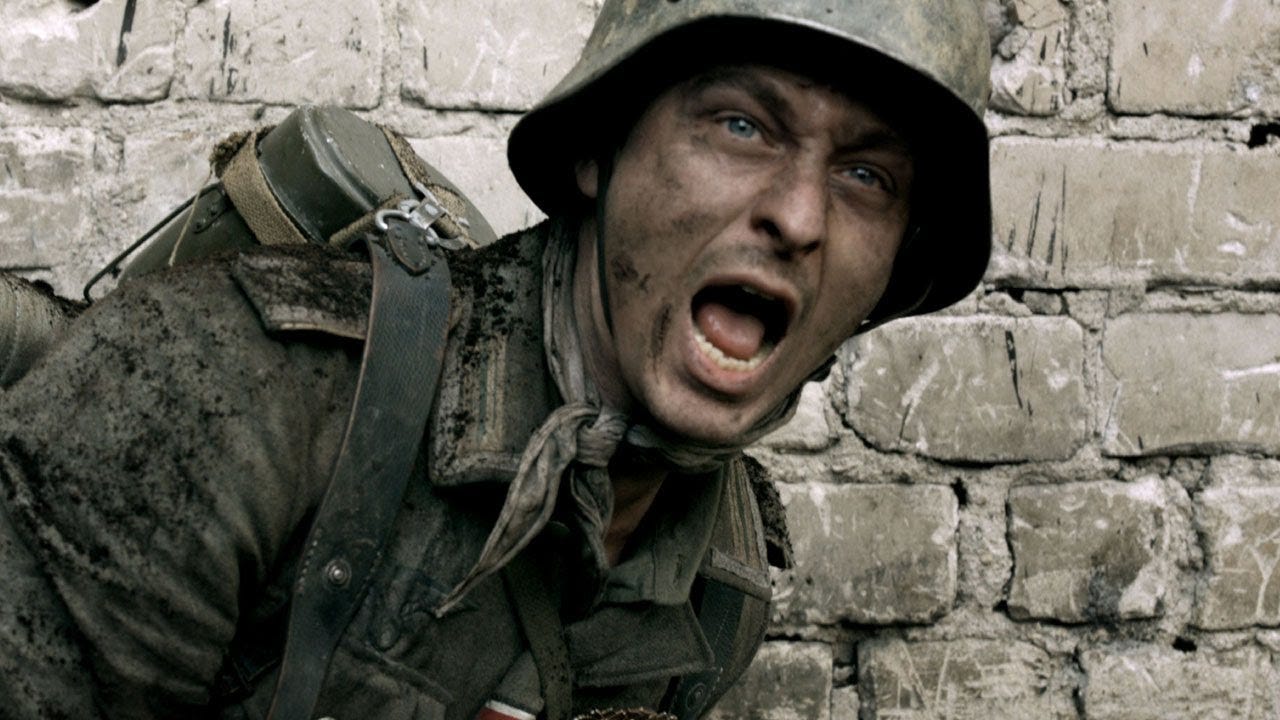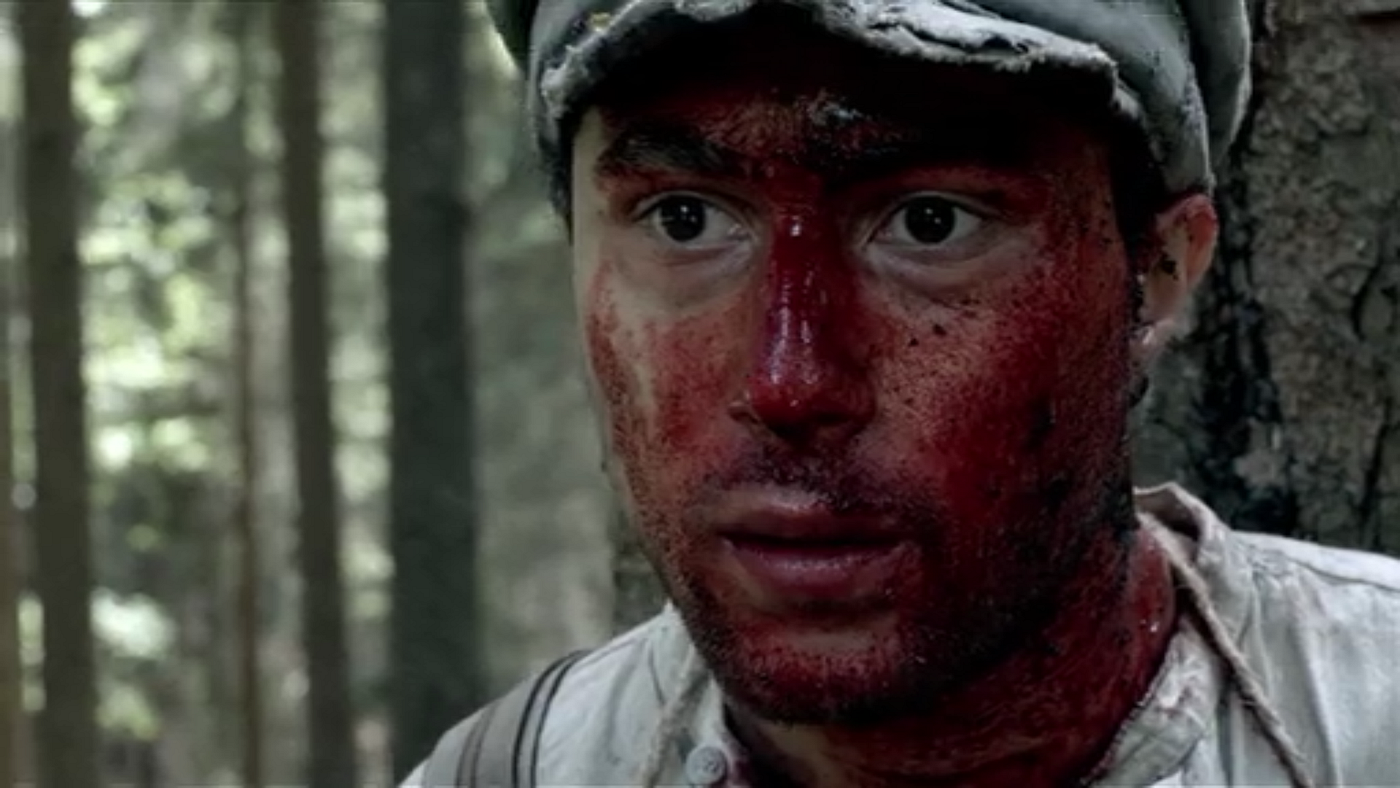‘Generation War’ doesn’t flinch
Five friends gather in a bar in Berlin. It’s 1941. The German Wehrmachtreadies its Russian campaign.
Two of the five friends—brothers Wilhelm and Friedhelm—are on their way to fight on the Eastern Front. Charly has just finished training as a field nurse. She’ll follow behind the two, caring for the wounded. Greta wants to be a star like Marlene Dietrich. Viktor Goldstein is a Jewish tailor in love with Greta.
These five grew up together. It’s the last night before the war separates them. They dance, smoke, eat and listen to swing music. Wilhelm—the older brother—is confident the war will be over by Christmas.
Friedhelm—the younger brother—says that the war will only bring out the worst in them. He’s right.
This is the opening scene of Generation War—a three part mini-series that ran on German television under the title Unsere Mütter, Unsere Väter.
It’s a tragedy in three acts and it’s fantastic. Rarely do Americans ever consider this side of World War II or see it rendered with such thought and care.
 Friedhelm Winter. Beta Film capture
Friedhelm Winter. Beta Film capture
‘This war will only bring out the worst in us’
The show is emotionally exhausting and brimming with depressing irony. We know how this story ends. So much so that the blind hopes and dreams of these characters at first seem like fodder for morbid entertainment.
But Generation War defies expectations. Greta, Charly, Wilhelm, Friedhelm and Viktor all are people. No one feels flat or contrived. Not even the side characters or the villainous Nazis.
In the West—and especially in America—we are so used to Nazi being a shorthand for supervillain. Writers use the jackbooted racist murderer as a despicable antagonist in countless movies, comic books and video games. It’s a nasty cliche, even if it is well-earned.
To be sure, there are monstrous acts by monstrous people in Generation War, but it never feels cartoonish the way it does in other World War II dramas.
This isn’t a story about faceless death squads rounding up Jews and civilians to murder in the streets. This is war. Ideological as well as geographic war. Not just a war for Europe, but a war for the heart of Germany.
Some—even German officers and soldiers—dissent. A German field surgeon in a Nazi uniform questions the practice of treating the local populace in the east like inferior stock. Wilhelm balks when commanded to execute a Russian commissar. In one fateful moment, Greta questions theEndsieg.
These moments never feel like apologetics. The field surgeon continues his job. Greta shills for the Nazi party. Wilhelm shoots the commissar. Everyone dirties their soul to feed the war.

‘It’s not always easy to know what’s right’
I was drawn the most to the younger brother Friedhelm.
He begins as a coward. He never volunteers for any duties, never fires his weapon and his fellow soldiers deride him. The war eats away at his resolve by degrees. He defends the life of an 11-year-old Jewish peasant only to see her gunned down in front of him. He survives battles that kill braver men.
A constant theme of the series is the characters’ willingness to sacrifice their ideals to survive. This war corrupts everyone it touches. Episode two opens with Friedhelm doing an impressive bit of soldering. Battle has baptized him. Survival and death have made him hard. The decisions he makes to survive reflect that.
He also understands—and repeatedly states—that the war is bullshit. He thinks it is pointless. This does not stop him from fighting it, though.
“To start with, on the battlefield, you fight for your country,” his brother Wilhelm says late in episode two. “Later, when doubt sets in, you fight for your comrades. But what when nobody else is there? When you’re alone. And the only one you can deceive is yourself. What do you fight for then?”
Friedhelm knows you fight to survive. You fight because it is all that’s left.
Generation War does not show the concentration camps. Its portrayal of the Holocaust is slight. Viktor’s family suffers at the hands of the Gestapo. They lose their homes and eventually their lives, but most of the horror is implied. Viktor does ride the trains to Auschwitz, but he never quite makes it there.
Some criticized Generation War for a soft portrayal of the Holocaust. I disagree. It does not shy away from Germany’s anti-Semitism or the Holocaust, it simply does not focus on it. This is a story about the German people, about how they survived their end of the war.
Viktor is a Jew, yes, but he’s a German first. And it is the German peopleGeneration War concerns itself with. The sacrifices they made. The challenges they faced. The pain and ruin they brought on themselves. The price they paid for a mad dream.
Generation War is streaming on Netflix.
No comments:
Post a Comment